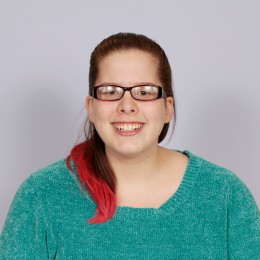
After reading about how the “University Counseling Center (UCC) is cutting long-term counseling,” I nervously waited for my next therapy appointment. I was scared that I wasn’t going to get my needs met like I had been for the past two semesters. I was frustrated about the chance that I might have to go through the process of being with a therapist who works well with my personality, class schedule and limited student budget. However, after I went to my next counseling appointment, I realized that my fears were unfounded, and that it was important for me to do my own research before taking information at face value.
When the initial shock settled, I realized that the brief therapy model may actually be beneficial to students despite what I first thought. I dug out my notes from psychology class and found that the brief therapy model is an evidence-based practice, which allows therapy to be more solution-focused, meaning time in therapy is more directed toward a goal. Although the word “brief” itself may be misleading, “brief” therapy may constitute 20 sessions. However, each semester may only allow 8-10 therapy sessions since appointments are usually on a bi-monthly basis. If “brief” is still too “brief,” the UCC may work with students on a case-by-case basis, extending the number of sessions depending on the circumstances. Many studies have shown that the brief therapy model is effective and that most of the benefits seen in therapy in general are the most prevalent within the first 20 sessions. A lot of things may occur over the span of one semester, and therapy in general is able to help promote significant positive changes within that same time frame.
However, brief therapy may not be suitable for everyone. Students who want more long-term therapy may find someone in the community that matches their needs with some help from the UCC. Looking in the community for additional support will allow the UCC to help even more students and decrease the wait time. When I went to the UCC, I remember having to wait almost a month to see someone. It is possible that the wait could be even longer now.
In my opinion, the UCC is “cutting services” in order for it to provide more of what the student body initially needs. By changing to the brief therapy model, the UCC will have more openings for students to be seen, and therapy will consist of less time of wandering aimlessly and more goal-directed interventions. Those who need more long-term therapy may see someone in the external community who will help them explore things in a greater depth as the UCC focuses on students who need guidance with more imminent factors and events. The brief therapy model will allow the UCC to fulfill its therapeutic potential on-campus.
Most importantly, though, please do not let the new structure of the UCC or what others may be saying deter you from getting the help you need. Regardless of the UCC’s changes, getting the support you need still remains at the utmost importance, and is worth taking the first step toward, even though it may be scary. Remember: take a deep breath. You can do this. You’re not alone. The UCC and your peers are there for you.
Amanda Rush is a graduate student studying social work.


